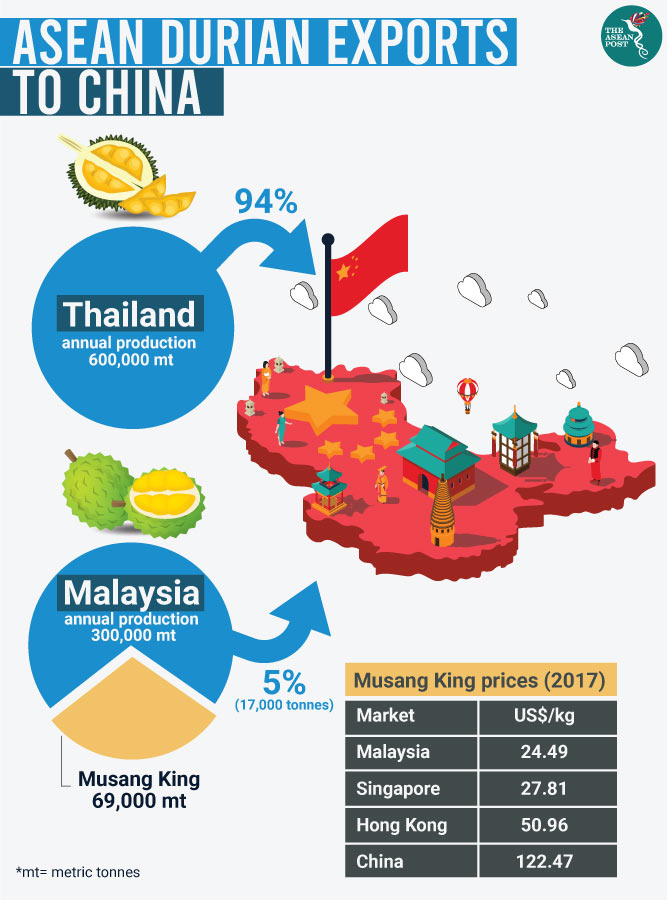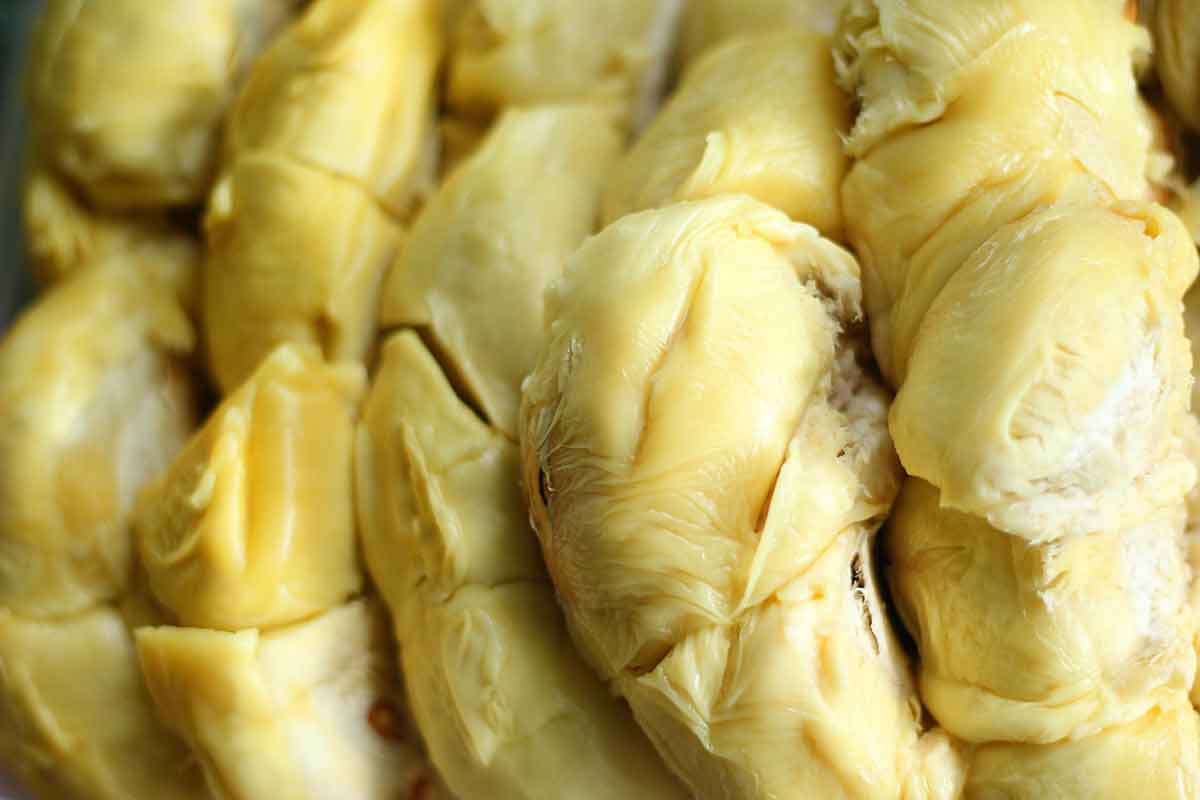Nothing gets your attention more than a whiff of the King of Fruits, whose pungent aroma can offend even an adult. Durian is a tropical fruit native to Southeast Asia and is mainly grown in Thailand, Malaysia, Indonesia and the Philippines. The hard, outer shell is covered in thorns, whose shape and size differs depending on the type. When ripe, the custard-like flesh inside can be sweet and creamy. However, the durian’s distinctive smell has made the fruit a polarising delicacy.
Thailand and Malaysia are the top global producers and exporters of durian, with an annual production of 600,000 and 300,000 metric tonnes, respectively. On the receiving end, China, Hong Kong and Singapore are the main export destination markets for durian.
Durian consumption is centred on the Asian market, but the Asian diaspora has resulted in the fruit being sold worldwide. In China, there is an increased demand for durian with Thailand as the country’s major source for the fruit. Annually, 90-95 percent of durians imported into China come from Thailand. Last year, Malaysia only exported 5.8 percent or 17,000 tonnes of durian to China.
In 2018, Malaysia highlighted durian as an asset that can contribute to its national income. Durian has the market potential to become a new source of agricultural wealth for the country.
῾Musang King᾽
Durian tourism in Malaysia has attracted many durian lovers to come and eat the fruit in plantations while also learning about the cultivation process at the same time. Tourists from China are visiting the state of Pahang in Malaysia, where the Musang King durian is native to.
The Musang King durian – also known as D197 or Mao Shan Wang – is the most sought-after durian in Malaysia. Its thick and creamy textured flesh has a sweet flavour with a hint of bitterness. The fruit’s rising prices and high demand has made it the key focus of exports for the Malaysian government. Musang King currently accounts for 23 percent of Malaysia’s annual durian production.
China is officially importing Musang King durian through strategic cooperation between Malaysia and the Alibaba Group, the Chinese conglomerate specialising in e-commerce and retail.
The partnership marks continuing efforts by the Alibaba Group to help promote Malaysia’s agricultural products and to empower local SMEs via the first overseas Electronic World Trade Platform (eWTP) hub established in 2017.
Malaysia’s Deputy Minister of Agriculture and Agro-based Industry, Sim Tze Tzin said, “Malaysia continues to facilitate the export and promotion of unique local products to the global market. The strong partnership between Malaysia and China has resulted in today’s durian export initiative and both governments had worked closely for months to facilitate the export of the frozen Musang King Durian in whole fruit form to China.”

The durian will be exported in frozen whole fruit form, which is a first for Malaysia. Previously, only pulp, paste and processed products were allowed to enter China due to quarantine restrictions. The new method of transporting the fruit was a collaborative effort by the Malaysian and Chinese government agencies to facilitate the export of the coveted fruit.
The General Administration of Customs of the People’s Republic of China (GACC) has said that the imported fruits must comply with specific guidelines and standards. Adopting the strictest traceability and inspection measures is necessary to ensure fruits meet the highest quality standards, and only farms that meet certain criteria will get the export approval to China, of which currently there are seven companies.
The whole fruits must be stored at a temperature between -80 and -110 degrees Celsius, before being transported. Nets are also installed to prevent falling or the fruits from contact with the ground. The GACC will audit all the participating facilities.
High price
In previous years, limited availability and strong demand have pushed up the price for Musang King durians and the growing demand by China could raise prices even higher. According to the Food and Fertilizer Technology Center for the Asian and Pacific Region (FFTC-AP), durian prices in Malaysia have increased by 200 percent since 2014.
Due to high demand and limited supply, the price of Musang King durians in China is significantly higher than elsewhere. One Musang King durian can reach an astounding US$122 per kilogram. To cash in on the profitability of the fruit, many farms have expanded into massive plantations.
Local media in Malaysia recently reported that rainforest in Pahang is being cleared to plant Musang King durians, which are in high demand. The soaring demand for durian has caused a new wave of deforestation in Malaysia, which could result in further loss of habitat for wildlife and plant species.
The durian is a legacy fruit. Supported by the government, durian is considered a new gold commodity and a source of income for Malaysia. However, the growth of Malaysia’s durian industry could come with a high ecological price tag.
Related articles:
Capitalising on Southeast Asia’s diverse food
